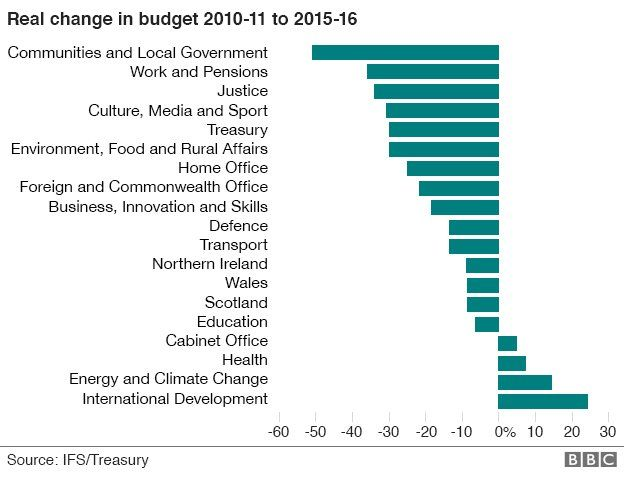Government consultant cuts are at the forefront of the political discourse as Conservative Leader Pierre Poilievre proposes slashing the federal budget for outside consultants by a staggering $10 billion a year. This move aims to rein in the ballooning costs associated with hiring external experts, which Poilievre claims have surged since the Liberal government took office in 2015. As Canada approaches the 2025 election, fiscal responsibility, government spending cuts, and the implications of an “inflation tax” are critical topics on voters’ minds. Poilievre’s commitment to curtailing consultant expenditures resonates with taxpayers who are frustrated by rising federal taxes that exceed $1,000 per family. By addressing these budgetary concerns, Poilievre could significantly impact the outcome of the upcoming Canada election 2025, promising a return to smarter, more efficient governance.
As the political landscape shifts towards fiscal accountability, the push for reducing government reliance on external advisors, or consulting services, takes center stage. With persuasive promise from Conservative leader Pierre Poilievre to implement significant budget reductions targeting these external consulting fees, the debate intensifies over management expenses within federal operations. Cutting back on such services directly aligns with calls for tighter government spending, particularly as concerns about the inflation tax loom large for families across Canada. In an era marked by rising costs and financial scrutiny, this approach highlights a critical examination of the efficacy and necessity of outside consultants in governmental processes. As the countdown to the Canada election 2025 continues, this dialogue emphasizes the urgent need for reform in federal budgeting practices.
Pierre Poilievre’s Proposed Cuts to Consultant Spending
In a bold move aimed at revitalizing Canada’s fiscal landscape, Conservative Leader Pierre Poilievre has proposed an unprecedented reduction of $10 billion from the federal government’s annual budget for consultants. This substantial cut, which is set to revert consultant fees to levels not seen since the Stephen Harper era, signifies a robust response to years of escalating government expenditures. By connecting these cuts to the larger conversation about inflation and taxes, Poilievre aims to address not just the bloated budget but also the financial strain felt by Canadian families, who he claims are indirectly covering these inflated costs through their taxes.
Poilievre’s commitment to slashing consultant fees comes amidst a backdrop of rising inflation, which he attributes to excessive government spending. With recent estimates indicating that the federal government has spent over $20 billion on external consulting services, the Conservative leader emphasizes that these funds could be better utilized by enhancing public service capacities rather than outsourcing essential functions. His plan seeks to restore trust in government spending while signaling a clear distinction between his party’s fiscal responsibility and the perceived wastefulness of the current Liberal administration.
The Impact of Government Consultant Cuts on Canadian Taxpayers
Proposed changes to the consulting budget have significant implications for Canadian taxpayers, many of whom have been feeling the pinch from increased inflation and rising costs of living. Poilievre argues that the average family is burdened by over $1,000 a year due to the inflated costs of governmental reliance on external consultants. By cutting these expenses, he aims not only to lower the overall tax burden but also to refocus government spending on essential public services that directly benefit Canadians.
Furthermore, the stark contrast in approaches between the Conservative Party and the Liberals regarding government spending reveals deep ideological divides. The intent behind Poilievre’s cuts resonates with a significant portion of voters who are frustrated by extravagant spending without corresponding results. As the election approaches, these proposed cuts have become a centerpiece in discussions about fiscal strategy, highlighting the broader implications of government consultant budgets not only on service delivery but also on long-term economic health.
This ongoing debate over the effectiveness of government outsourcing services to private consultants indicates a pivotal moment in Canadian politics, especially as the country gears up for the 2025 Canada election. Voters are increasingly scrutinizing how government expenditures are managed and whether taxpayers are reaping adequate returns on investments made in the public sector. If Poilievre can effectively communicate the financial advantages of his proposed cuts, he may galvanize support not just within conservative circles but also among disillusioned constituents eager for financial reprieve.
Axe the Inflation Tax: Poilievre’s Strategy
Pierre Poilievre’s campaign slogan, ‘Axe The Inflation Tax’, encapsulates his strategy to combat rising costs that affect everyday Canadians. During his campaign, he urged voters to consider how increased government spending has not only created a widening deficit but also directly contributed to inflationary pressures. By slashing expenditures related to outside consultants, he frames this move as a necessary corrective to alleviate the financial strain on families, thereby positioning his party as a champion for fiscal prudence.
The slogan goes beyond mere rhetoric; it reflects a broader commitment to reducing government waste and ensuring that taxpayer dollars are used effectively. By resourcing essential services in-house and limiting external consulting, the Conservative Party aims to streamline operations, which Poilievre argues will ultimately lead to lower costs for Canadians. His approach challenges voters to envision a government that prioritizes accountability and efficiency, resonating particularly well with those concerned about the ongoing impact of inflation on their everyday lives.
Consultant Fees and the 2025 Canada Election
As the 2025 Canada election looms closer, the discussion surrounding consultant fees has become a lightning rod issue. The Conservative Party, under Pierre Poilievre, is leveraging the perceived excesses of federal spending to rally voter support. By promising to rein in consultant fees, Poilievre not only addresses financial concerns but also positions himself as a candidate attuned to the frustrations of the electorate, particularly as they relate to inflation and rising living costs.
Critics of government outsourcing point to the inefficiencies and high costs associated with relying on external firms for governmental work. Poilievre’s stance against this trend appeals to voters who are demanding transparency and better management of public funds. In doing so, he effectively creates a narrative that emphasizes a return to sound fiscal practices—a key message that could resonate strongly in the upcoming election and influence public sentiment toward the Conservative platform.
Understanding Inflationary Pressures in Canadian Economy
The inflationary pressures currently facing the Canadian economy are multifaceted. Rising costs of goods and services make it imperative for political leaders like Pierre Poilievre to address government spending directly. His recent announcement regarding substantial cuts to the consultant budget are an attempt to tackle these inflationary issues at the source, as he frames wasteful spending as a core contributor to the inflation tax burden being shouldered by average Canadian families.
As inflation continues to rise, so does public discontent regarding government spending practices. Poilievre’s linkage of consultant fees to the overall issue of inflation allows him to appeal to fiscal conservatives and moderates alike who may be looking for effective solutions to a pressing economic crisis. By clearly stating his intent to cut back on these expenditures, he seeks to instill confidence in his leadership and economic policies, potentially swaying undecided voters in crucial swing ridings.
Managing Public Service Size Through Consultant Cuts
Pierre Poilievre’s proposal to reduce the reliance on outside consultants comes hand-in-hand with a broader strategy to streamline the public service. He suggests that by cutting the consultant budget by $10 billion annually, the government can ensure that skilled positions within the public service are filled and not outsourced. This approach aims to build a more self-sufficient governmental structure that can adequately respond to citizens’ needs without resorting to costly external services.
By adopting this method, Poilievre presents a vision of a more efficient public sector that prioritizes the hiring of Canadian professionals rather than depending on external consultancy firms. This perspective aligns with his critique of the previous Liberal government’s excessive use of consultants and promises to enhance the capacity of the federal workforce while managing its size. As debates about the public service’s role and capacity intensify, Poilievre’s plan may gain traction among those advocating for reforms in government practices.
Historical Context: Government Spending under Harper vs. Trudeau
The contrast between government spending during the Stephen Harper administration and the current policies under Justin Trudeau provides significant context for Pierre Poilievre’s proposed budget cuts. Under Harper, consultant fees were tightly regulated, not allowing for the same inflationary increases that have occurred during Trudeau’s tenure. This marked a significant shift in how the government has managed expenditures, drawing criticism from various political factions who argue that the current administration has over-relied on outsourcing.
Understanding this historical framework is essential for voters as they analyze Poilievre’s promises. By framing his proposals through this lens, he aims to highlight the fiscal negligences of the Liberal government, which has led to increased taxes and a burdened public. The Conservative narrative seeks to evoke a longing for the fiscal discipline of past administrations while positioning Poilievre as the leader who will restore such practices.
Public Reaction to Consultant Budget Cuts
The proposed cuts to consultant budgets have elicited varied reactions from the public and political analysts alike. Supporters of Poilievre see these cuts as a long-awaited reassessment of government spending priorities, believing they could lead to more effective use of taxpayer dollars. This perspective is bolstered by the perception that external consultations often fail to yield valuable returns, thus justifying the need for a new approach focused on accountability.
Conversely, critics argue that drastic cuts to consultant fees may lead to a gap in expertise within the public sector, possibly undermining the quality of services provided to Canadians. The balance between effective cost management and maintaining a skilled workforce will be a critical point of contention as Poilievre continues to push for his agenda. How he navigates this debate could shape public opinion and electoral success leading into election day.
The Future of Government Spending: Insights from Policy Platforms
As various parties unveil their platforms ahead of the upcoming election, discussions surrounding government spending, particularly regarding consultants, will shape the political landscape. Pierre Poilievre’s promise to cut $10 billion from the consultant budget comes amidst proposals from opposing parties that also suggest reevaluating consulting expenditures but may not advocate for the same degree of cuts. These differing strategies present voters with a clear choice regarding fiscal policies and priorities.
How these differing platforms resonate with the electorate will likely influence discussions around inflation and economic recovery. Poilievre’s commitment to serious budgetary reductions paints a picture of a Conservative government that seeks to reign in wasteful spending while enhancing the overall efficiency of public service. Engaging voters in this conversation about the future of government expenditures—and the potential impacts of policy decisions—will undoubtedly play a significant role as Canadians prepare to cast their votes.
Frequently Asked Questions
What are Pierre Poilievre’s plans regarding government consultant cuts in Canada?
Pierre Poilievre, the Conservative Leader, announced plans to cut the federal government’s consultant budget by $10 billion annually if elected. This reduction aims to roll back consultant fees to levels seen during Stephen Harper’s time in office, addressing concerns about increased government spending leading to inflation.
How will government consultant cuts affect Canadian taxpayers?
Poilievre claims that excessive spending on consultants costs the average Canadian family over $1,000 in federal taxes. By imposing significant government consultant cuts, he believes that the tax burden can be reduced while improving overall fiscal responsibility.
What has been the trend of government spending on consultants in Canada since 2015?
Since the Liberal government took power in 2015, spending on consultants has nearly doubled, escalating to $20.8 billion last year. Poilievre’s proposed government consultant cuts aim to reverse this trend and eliminate unnecessary expenses associated with outsourced professional services.
What are the overall implications of government spending cuts on inflation in Canada?
Poilievre argues that government spending cuts, specifically in the area of consulting, will alleviate inflationary pressures by reducing excessive fiscal waste. He ties these cuts to a broader strategy of managing government finances more effectively.
How does Poilievre’s consultant budget reduction compare to previous governments?
Under the Harper government, spending on consultants was much lower, at around $8.4 billion in 2015. Poilievre aims to bring federal consultant expenses back to these levels through proposed budget reductions.
What other measures has Poilievre suggested alongside government consultant cuts?
In addition to cutting the consultant budget by $10 billion, Poilievre has promised to cap government spending, reduce deficits, cut taxes, and shrink the public service by a projected 17,000 jobs per year through attrition.
What alternative plans do other political parties have regarding government consultant cuts?
Mark Carney’s Liberal platform suggests significantly reducing reliance on external consultants while enhancing the public service’s in-house expertise. The New Democrats and the Bloc Québécois have also announced platforms addressing government spending and service delivery.
Why are the Conservatives focusing on government consultant cuts in their election strategy?
The Conservatives are focusing on government consultant cuts as a central theme in their election strategy to combat rising inflation and public dissatisfaction with government spending. Poilievre positions this as part of a broader plan to revive the Canadian economy and decrease tax burdens on families.
| Key Point | Details |
|---|---|
| Poilievre’s Budget Cut Pledge | Conservative Leader Pierre Poilievre promises $10 billion annual cuts to government consultant spending. |
| Consultant Spending Increase | Federal government consultant costs have doubled since the Liberals came to power in 2015. |
| Impact on Families | Poilievre claims the increased spending costs families over $1,000 in federal taxes. |
| Previous Spending Levels | Consultant spending was $8.4 billion in 2015 but rose to $20.8 billion recently. |
| Criticism of Outsourcing | Conservatives argue that reliance on consultants drives unnecessary costs. |
| Other Parties’ Responses | Liberal Leader Mark Carney promises to reduce consultant reliance while improving public service hiring capacity. |
| Future Economic Plans | Poilievre plans to cut taxes and reduce red tape to boost economic growth and government revenue. |
Summary
Government Consultant Cuts are at the heart of Pierre Poilievre’s campaign, where he promises a significant reduction of $10 billion in annual spending on outside consultants. By reverting to previous budget levels from the Harper administration, Poilievre aims to alleviate the financial burden on Canadian families and address the soaring inflation attributed to increased government spending. His commitment reflects a broader criticism of the current government’s reliance on outsourcing and seeks to promote enhanced efficiency within the federal budget.



